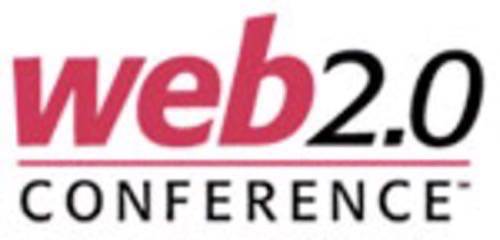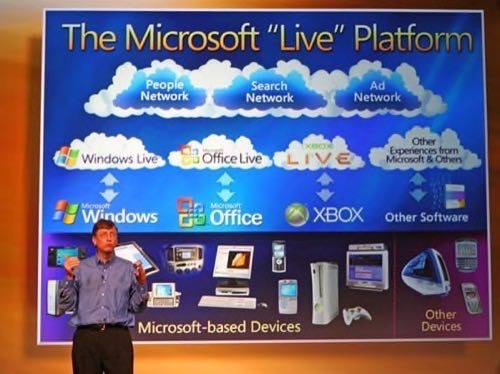Five years ago I interviewed tech publisher Tim O’Reilly about a new term that his company had just coined: Web 2.0. The first Web 2.0 conference had been held the previous month, October 2004, and O’Reilly had graciously agreed to give an interview to yours truly – “an unknown blogger from New Zealand,” as I put it back then. The interview ran in a 3-part series (see also part 2 and part 3) and covered Web 2.0, new business models, social software and eBooks.

I’ve always been a big believer in learning from history as we look to the future. So let’s re-visit this interview from five years ago and see how prescient the father of Web 2.0 was.
Microsoft and Web 2.0
In 2004 the leading Web 2.0 companies were Google, Yahoo! and Amazon. But what of the dominant software company of the previous generation, Microsoft? I asked Tim O’Reilly back in November 2004 whether Microsoft’s core strategy of software lock-in would survive in web 2.0?
O’Reilly argued that Microsoft would have to change: “I think that the business of Microsoft, the company of Microsoft, is going to continue to succeed. But I think the business model of Microsoft is going to have to change.”
This has turned out to be the case. Over the past 5 years, Microsoft has slowly rolled out a “software plus services” strategy under the catch-all phrase ‘Live.’ While the Windows OS and desktop software such as Office continue to be Microsoft’s mainstay products, some of the functionality gradually moved into the cloud – e.g. syncing over devices. Vista, the current generation of Windows, began that transition. In 2009, Microsoft is even taking steps to put Office online.

With the benefit of hindsight, I think O’Reilly nailed it in 2004 with this statement: “Microsoft will continue to dominate on the PC, but the PC is going to be a smaller and smaller part of the entire business.”
The Mobile Web, for one, has taken attention away from Microsoft. Which is where Apple comes in…
Apple and Web 2.0
At the inaugural 2004 Web 2.0 Conference, Apple was a no-show. In talking about Apple’s position in the Web industry back then, O’Reilly said that “Apple is in a position they’ve been in a lot of times before. They’re like Moses showing the way to the promised land, but they don’t actually go there.”
Although Apple never did open up, as O’Reilly foresaw, nevertheless they went on to create the most successful new gadget of the past decade: the iPhone. Apple also created a thriving iPhone app ecosystem.
So in the case of the Mobile Web, Moses (a.k.a. Steve Jobs) actually did lead us to the promised land!

Facebook and Data Lock-in
In 2004 I noted that “a lot of what Web 2.0 is about is users producing content and not just consuming it.” I pointed to O’Reilly’s own example at the time: Amazon compared to the Barnes & Noble website. However, I said that “the other side of that coin […] is the ‘data lock-in’ of users, where users may not necessarily have control over their content.” I asked O’Reilly if that was something for users to be concerned about?
O’Reilly replied, in November 2004, that “there are companies that are trying to use data lock-in as a competitive tool – and there will eventually be a recognition that this is a problem.”
This has indeed happened – and data lock-in is nowhere more of a problem than on the world’s most popular social network circa 2009, Facebook. Over the past few years we at ReadWriteWeb have written many articles about Facebook’s ‘walled garden’ approach to user data. Users can’t take their personal data elsewhere. What’s more, there have been bungled attempts to use that data for commercial means.

Remember that Facebook had just launched in February 2004 and was confined to some selected American Universities (Harvard, Stanford, Columbia and Yale). It had yet to reach the 1 million users mark. While O’Reilly couldn’t have known that Facebook would turn into the juggernaut it now is, he did accurately predict that data lock-in would become a major issue:
“I believe that data lock-in of various kinds is going to be one of the key tools of business advantage in the internet era. I think that as companies realize this, they will figure out how to be evil – so to speak (to use Google’s terminology) – and I predict that we will in fact have some major battles in that area.”
Conclusion
It is remarkable how much can change in the Web industry in five years. Back in 2004, Facebook was a baby and Twitter wasn’t even a glint in the milkman’s eye. Among the big companies of that time, Apple hadn’t yet given birth to the revolutionary iPhone and Microsoft was entering its mid-life crisis.
On reflection, Tim O’Reilly did extremely well in his 2004 predictions – considering how fast the Internet evolves. And I’m still grateful to him for giving an interview to an unknown New Zealand blogger. How times change…
Image credits: Niall Kennedy; Shht!; Alex Eckford





















